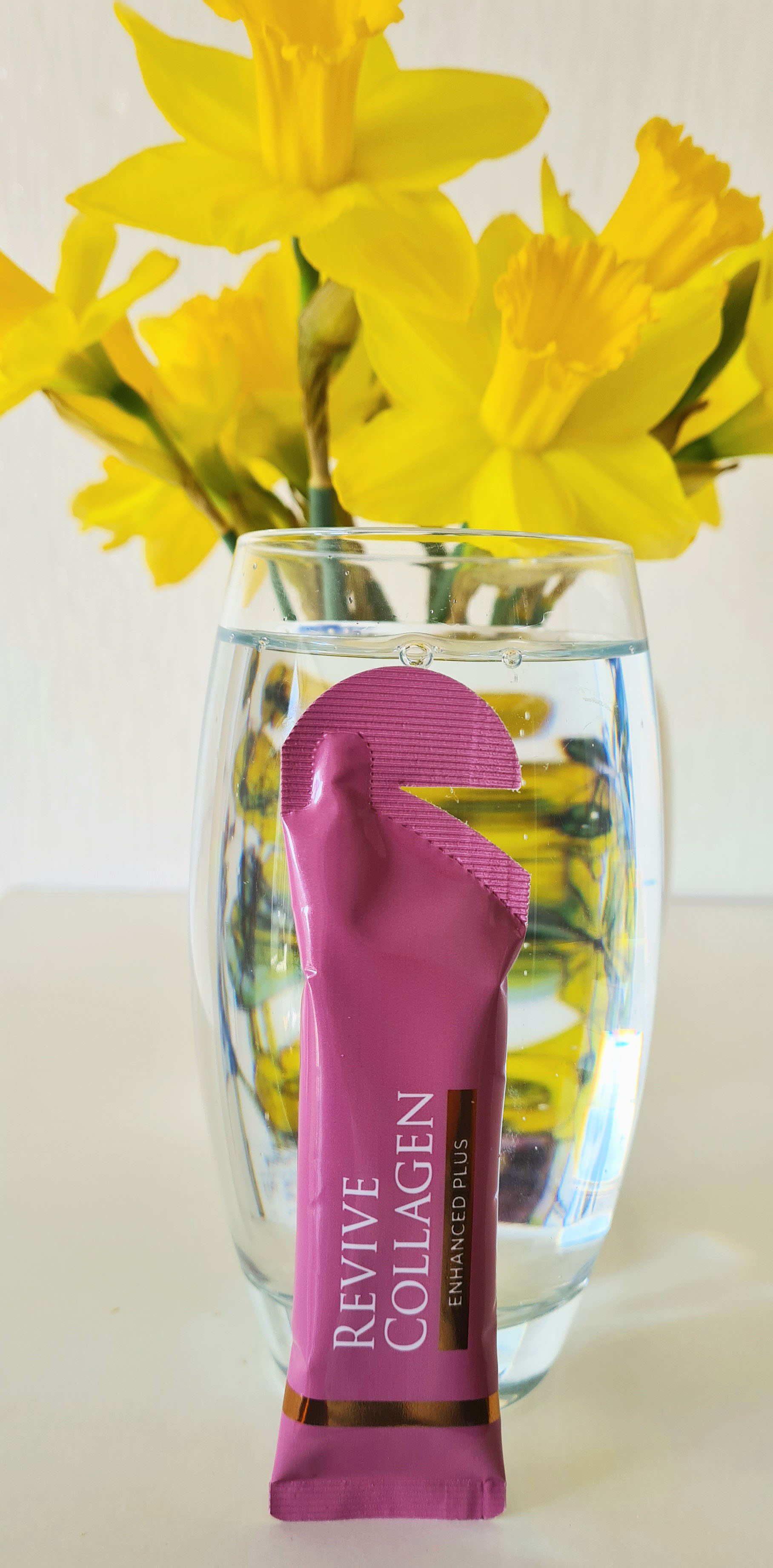Dear friends. Chances are you may have seen one or two ads lately for collagen to improve your skin, maybe peppered with a celebrity or two. And you may be wondering if it's worth trying. Alternately, you may be thinking about collagen to try to improve arthritis. I've been looking into the subject so here's what you need to know.
First of all, there isn't a one size collagen that fits all. Our bodies are made up of 16 types of collagen. Most of it is type I, II, or III. Type I is in the skin, tendons, and bones. Type II is in cartilage. Type III is in the skin and muscles. When you buy collagen products for skin or joints they'll be delivered in a different form - gelatin, hydrolysed, and denatured - and the collagen used will typically come from cows, pigs, and marine life like jellyfish, sponges, sharks, and other fish.
What does collagen do?
Collagen activates cells called fibroblasts in the skin, which trigger the production of collagen, as well as elastin, a protein that makes skin more stretchy. As we get older, collagen diminishes in our skin and we lose our plump, youthful faces.
Research and scientists' views
Collagen to reverse the decline of our skin is now a multi-million pound industry. But dermatologists say research data is quite weak, while some dismiss altogether the idea that collagen has any effect on the skin. Skin creams and moisturisers are ineffective because collagens have molecular weights making them too large to penetrate the top layer of skin.
Dr Anjali Mahto, a consultant dermatologist and author of The Skincare Bible, says claims about the benefits of liquid collagen should be treated with caution. "At present there is no concrete evidence showing it will survive digestion, travel into the bloodstream and make it into your skin."
Nazanin Saedi, MD, associate professor and director of the Jefferson Laser Surgery and Cosmetic Dermatology Center in Philadelphia, agrees that the data is really weak. She says other treatments such as Retin-A and laser resurfacing have much more evidence to support that they boost collagen production.
Collagen supplements are not thought to be harmful to the body so there's no problem in trying it. The experts recommend finding a hydrolysed version.
Collagen for the joints?
Collagen for conditions like arthritis cannot help the body to regrow cartilage. Nancy E. Lane, MD, a professor of medicine, rheumatology, and aging at the University of California, Davis. explains: "Because cartilage deteriorates in osteoarthritis, it's been thought that if you could give a supplement like collagen, it would help you regrow cartilage. It does not."
She says the supplements won't hurt if you want to try them, but it's not going to stop the joint from deteriorating. You may get more benefit from walking and swimming to strengthen the muscles around the joint, as well as topical non-steroidal anti-inflammatory drugs (NSAIDs) to relieve pain and inflammation.
Giving Revive Collagen a try
I was invited by UK brand Revive Collagen to try their liquid Enhanced Plus sachets. Revive's product contains Type 1 hydrolysed marine collagen. The brand says the collagen is broken down into peptides and absorbed by the body as soon as it enters the stomach.
Revive says that each daily sachet of Revive Collagen can be up to 20 times more powerful than typical collagen pills because it is already broken down for the body to absorb into the bloodstream.
The brand says that "With a 90% to 95% absorption rate, the ingredients work quickly from the inside out to help achieve younger looking skin from within."
What Happened
I had a two weeks' supply and I did see a slight difference. At the time I was also starting a new regime of skincare, so it was hard to know where to attribute the improvement. After I'd run out of Revive Collagen, my skin lost its slightly peachier, plumper look, so I have to say that it did seem to have an effect.
I was motivated enough to attempt to buy it on two occasions. The first time, I got to the final stage of checkout to find they didn't take PayPal. I don't know about you, but I can't usually be bothered to get up and fetch a card if that happens.
The second time, I hesitated because I realised didn't want to commit to a subscription model. You can only buy the 14 days' box if you want to pay as you go.
It's not a cheap product. 28 days of the enhanced product is £67.98, which would come to more than £815.76 for a year. For someone like broadcaster Amanda Holden, Revive Collagen's brand ambassador, this product is a Must Have because her brand is built on looking younger than she is (51).
I strongly suspect Holden uses a multiplicity of other products and non-surgical treatments, which probably include Botox, fillers and laser resurfacing. And good luck to her: she looks great. But most of us can't aspire to that level of expenditure.
So my conclusion would be: the jury is out - there isn't enough detailed and robust industry or 3rd party research to suggest collagen works. But if you're minded to give it a try, and it won't dent your pocket, there's nothing to lose.
I was gifted with 2 weeks' supply of Revive Collagen. As always, my editorial opinion is my own and I pride myself on honest and objective reviews backed by science.
Sharing this post with: #AnythingGoes at My Random Musings, Rena at Fine Whatever, Talent Sharing Tuesdays at Scribbling Boomer, Link Up Pot Pourri and Traffic Jam Weekend at My Bijou Life


No comments
Post a Comment